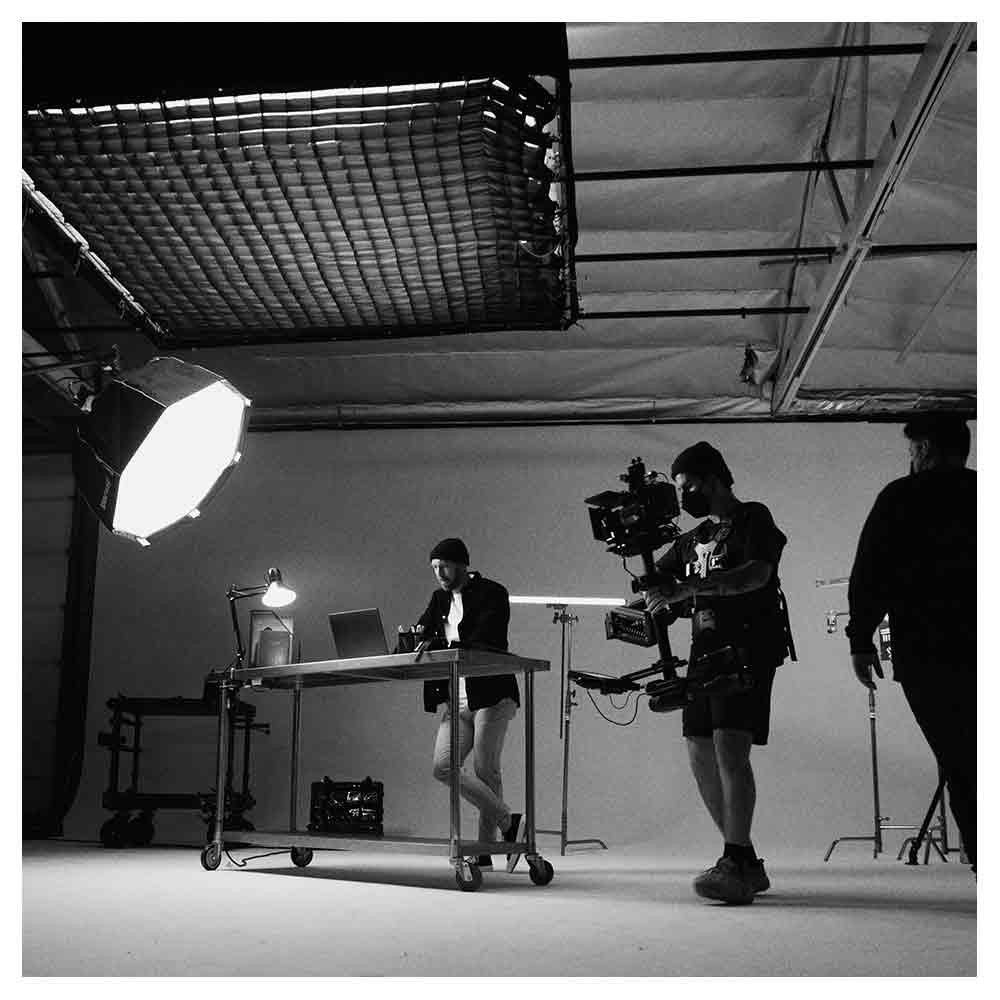How To Get Into The Film Industry: A Comprehensive Guide
So you've been bitten by the cinema bug, and now you're itching to get in on the action. Whether you've dreamed of yelling "cut" on a bustling film set, spinning stories in the writer's room, or even making magic in the editing bay, there's a place for you in the film industry.
This blog post will guide you through the process of kickstarting your film career, from film school to your next job.
Step 1: Determine Your Focus
The first step to entering the film industry is determining your focus. Are you interested in writing, directing, or acting? You may be more drawn to the technical side of things like sound design, visual effects, or audio engineering.
You may want to work closely with other like-minded individuals in production. There are many jobs in the film industry, so take the time to understand where your passion and skills align.
Step 2: Education and Skills Building
Once you've determined your focus, it's time to hit the books. A bachelor's degree in film or a related field can be beneficial. However, there are other paths to success in the film industry jobs. Many successful filmmakers are self-taught, learning the ropes through practical experience.
If you decide to attend film school, you'll gain a well-rounded education in filmmaking, from understanding the basics of a single handheld camera to the intricacies of post-production. Film school can also be a great place to start building your professional network.
Beyond formal education, there are many skills you'll need to cultivate. For instance, if you're interested in film production, learning about sound equipment, location management, and the roles of crew members is crucial. For aspiring film and video editors, understanding how to work with raw footage and create visual effects is vital.
Step 3: Gain Experience
Next up is gaining hands-on experience. Work closely with local productions or smaller productions to build your portfolio. Even if you start with short films, every bit of practical experience counts.
Look for opportunities to work as production assistants. This role offers an overall view of film production, from pre- and post-production. You'll witness principal photography, deal with background noise, and even rub shoulders with actors and directors.
Consider participating in film festivals. These are excellent platforms for showcasing your work and meeting other filmmakers. Even if you're working with a single handheld camera, consider the power of a compelling story and good editing.
Step 4: Networking
Networking is a vital part of breaking into the film industry. Start with your film school classmates, teachers, and alums. Attend industry events and film festivals. Reach out to industry contacts and work closely with them.
Remember, the film industry thrives on collaboration. You'll often hear about opportunities through social media or word of mouth, so having a broad professional network is essential.
Step 5: Stay Persistent and Keep Learning
The film industry is notoriously competitive, and you might face several rejections before landing your next job. Keep going. Every successful filmmaker has faced setbacks.
Stay curious and keep learning. The film industry, like the media industry at large, is ever-evolving. Keep up with trends, technologies, and techniques.
Step 6: Work Your Way Up
Starting at the bottom might seem daunting, but remember, even the most successful directors and producers began their journey with smaller roles.
Jobs like production assistants or positions in the art department provide valuable insights about the industry. You may start by managing crew positions or working with sound effects, but every experience will lead you closer to your dream job.
Step 7: Create Your Own Opportunities
If you find it challenging to break into existing productions, why not create your own? Today, more than ever, it's possible to shoot a short film or even a feature film with a single handheld camera.
These independent productions provide fantastic learning experiences and tangible proof of your skills and creativity.
Step 8: Location, Location, Location
The film industry isn't exclusive to Hollywood anymore. Many cities around the world have thriving local film industries. Consider your location and how it can benefit your career.
Look for local film offices and film festivals. Starting in a smaller market allows you to gain experience more quickly.
Step 9: Master the Art of the Pitch
Whether you're vying for a job, trying to secure funding for your independent film, or hoping to convince an actor to star in your project, you'll need to master the art of the pitch.
This includes writing compelling proposals, presenting your ideas clearly, and showcasing your passion for your project.
Step 10: Maintain a Work-Life Balance
While it's essential to be dedicated and passionate about your film career, it's equally crucial to maintain a healthy work-life balance.
The film industry is known for its long hours and intense work periods, but remember to take time out for relaxation and self-care. This not only prevents burnout but also keeps your creative juices flowing.
Conclusion
There needs to be a surefire path to success in the film industry. It's a unique journey for everyone, filled with triumphs, setbacks, learning, and growth.
But with passion, persistence, and a willingness to learn, you can make your mark on the silver screen. So grab your camera, rally your crew, and start making movie magic.
Remember, in the film industry, every experience is a step toward your dreams, whether working on a film set, handling sound equipment, or even cutting background noise.
So, stay focused, gain as much practical experience as possible, and keep creating. You never know – your next job might be your big break!
Finally, as you navigate your path in this fascinating industry, remember to enjoy the process. After all, you're working in the magical world of film, where anything is possible. Lights, camera, action – your film career awaits!
Frequently Asked Questions About How To Get Into The Film Industry (FAQs)
Do I need to attend film school to enter the film industry?
While attending a film school can provide a structured environment to learn filmmaking skills, get hands-on experience, and build a professional network, it's not a requirement. Many successful individuals in the film industry are self-taught or have learned through practical experience.
What skills are essential for working in the film industry?
The skills you need depend on your area of focus. For instance, if you're interested in film production, you should learn about sound equipment, location management, and the roles of crew members.
For aspiring film editors, understanding how to work with raw footage and create visual effects is crucial. Beyond technical skills, creativity, communication, collaboration, and problem-solving abilities are highly valued in the industry.
How can I gain practical experience in filmmaking?
Getting hands-on experience can start with working on local productions, smaller productions, or short films. Look for opportunities to work as production assistants. Participate in film festivals to showcase your work and network with other filmmakers.
How important is networking in the film industry?
Networking is a vital part of breaking into the film industry. Building a strong professional network can open doors to opportunities you may not find through traditional job searches. It also allows you to learn from more experienced individuals in the industry.
How can I keep improving my skills and stay updated with industry trends?
Continuous learning is key in the film industry. Attend workshops, seminars, and industry events. Join online forums and follow industry news. Always be open to feedback and look for ways to improve your work.
I've been trying to break into the film industry for a while, but I keep facing rejections. What should I do?
Persistence is crucial in the film industry. Every successful filmmaker has faced setbacks. Learn from your rejections, improve your skills, and keep applying for jobs and opportunities. Consider creating your own opportunities by producing your own short films or independent projects.
Do I need to move to Hollywood to work in the film industry?
While Hollywood has a high concentration of film industry jobs, there are other places where you can build a film career.
Many cities around the world have thriving local film industries. You can start by working with local film offices and participating in local productions.
What kind of jobs can I get in the film industry?
The film industry offers a wide variety of jobs that cater to different skills and interests. You could work as a director, producer, screenwriter, cinematographer, film editor, production assistant, sound engineer, visual effects artist, location manager, and many more. You might also find work in related areas such as the art department, sound design, or even foley artist.
How can I showcase my work to potential employers or collaborators?
Creating a portfolio is an excellent way to showcase your work. Include any projects you've worked on, from short films to feature films. If you're a writer, include scripts you've written. For those in post-production, before-and-after samples of your work can be very impactful.
How important is a bachelor's degree for getting into the film industry?
While a bachelor's degree in film or a related field can be beneficial, it's not a requirement. The film industry values practical experience and demonstrable skills, and many successful individuals in the film industry still need formal education in film.
How can I get involved with film festivals?
Film festivals are an excellent platform for showcasing your work and networking. You can submit your films for consideration, attend screenings, participate in workshops, and meet other filmmakers. You can find submission guidelines and deadlines information on the festivals' official websites.
Can I start a career in the film industry at any age?
Absolutely! The film industry welcomes individuals of all ages. Whether you're a recent graduate or considering a mid-career switch, there is always time to pursue your passion for film.
I want to be a director. What's the best path to take?
Many directors start by gaining experience in various roles in the film industry, such as writing or production. Making your own short films can also provide valuable directing experience. Remember, every director has a unique journey, so find the best path for you.
I am interested in the technical side of filmmaking. Where should I start?
If you're interested in areas like sound design, audio engineering, or visual effects, consider taking relevant courses or workshops. Working on local productions or as part of a crew can provide hands-on experience. Also, stay updated with the latest technology and software used in the industry.






























